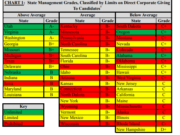Fox News reported that Senator Dick Lugar R-IN, lost his renomination bid after 35 years in office. Lugar is expected to be one of a very few incumbent senators to lose his primary bid, according to the article, having been defeated by Tea Party challenger Richard Mourdock.
According to Fox: “Lugar’s campaign spent $6.7 million compared to Mourdock’s $2 million. But Mourdock’s political action committees spent $2.9 million attacking Lugar over the incumbent backers’ $1.7 million.”
A check on election spending from Opensecrets.org reveals that Sen. Lugar had considerably more money spent against him in independent funds than in favor: $208,628 were spent in favor of Lugar, while $1,670,383 were spent against him. In contrast, Mourdock had $1,381,087 spent in his favor and $1,278,762 spent against him. Sixteen different organizations spent money in the race.
A preliminary analysis suggests independent spending may be helpful in unseating incumbents. While it’s difficult to prove whether the spending or voter zeitgeist against the incumbent was responsible (or how much each factor contributed), it is safe to say that many incumbents may be fearful of outside spending, despite generally enjoying a considerable fundraising advantage over challengers. According to Larry Sabato, professor of political science at the University of Virginia and one of CCP’s academic advisors: “It’s difficult to believe that Mourdock would have seriously threatened a six-term senator had he not had strong backing from the super PACS and other outside groups.”
Citizens can now accomplish through independent spending what voters have been unable or unwilling to do for many years: remove longtime incumbents in very safe districts. A number of organizations have written articles complaining about super PAC spending in the Indiana senate race over the past few days; so far, not one talks about the benefit of being able to unseat longtime incumbents entrenched in heavily gerrymandered districts in a congress that enjoys around a 90% incumbency rate. As this election cycle moves forward, we will likely hear many more stories of legacy politicians losing their seats.














